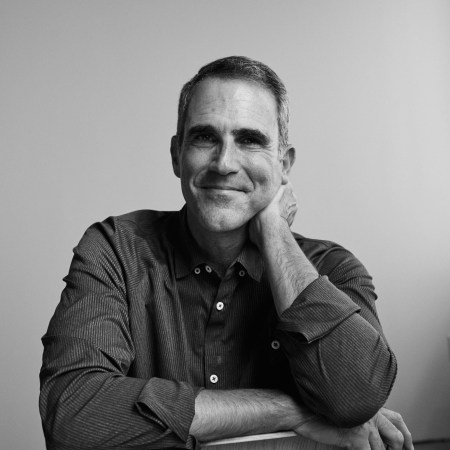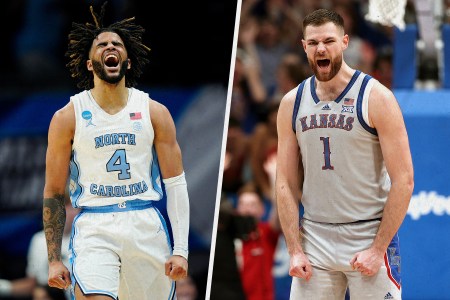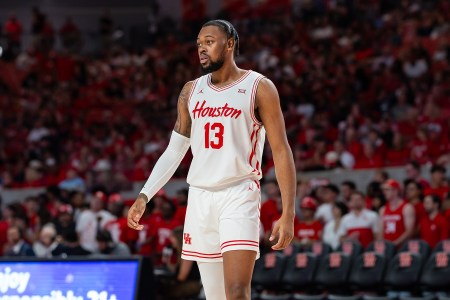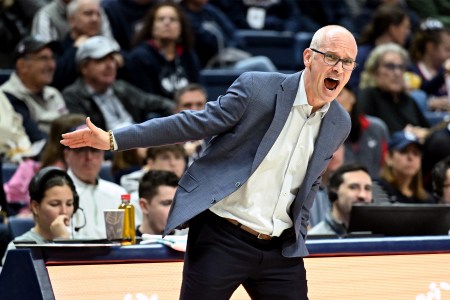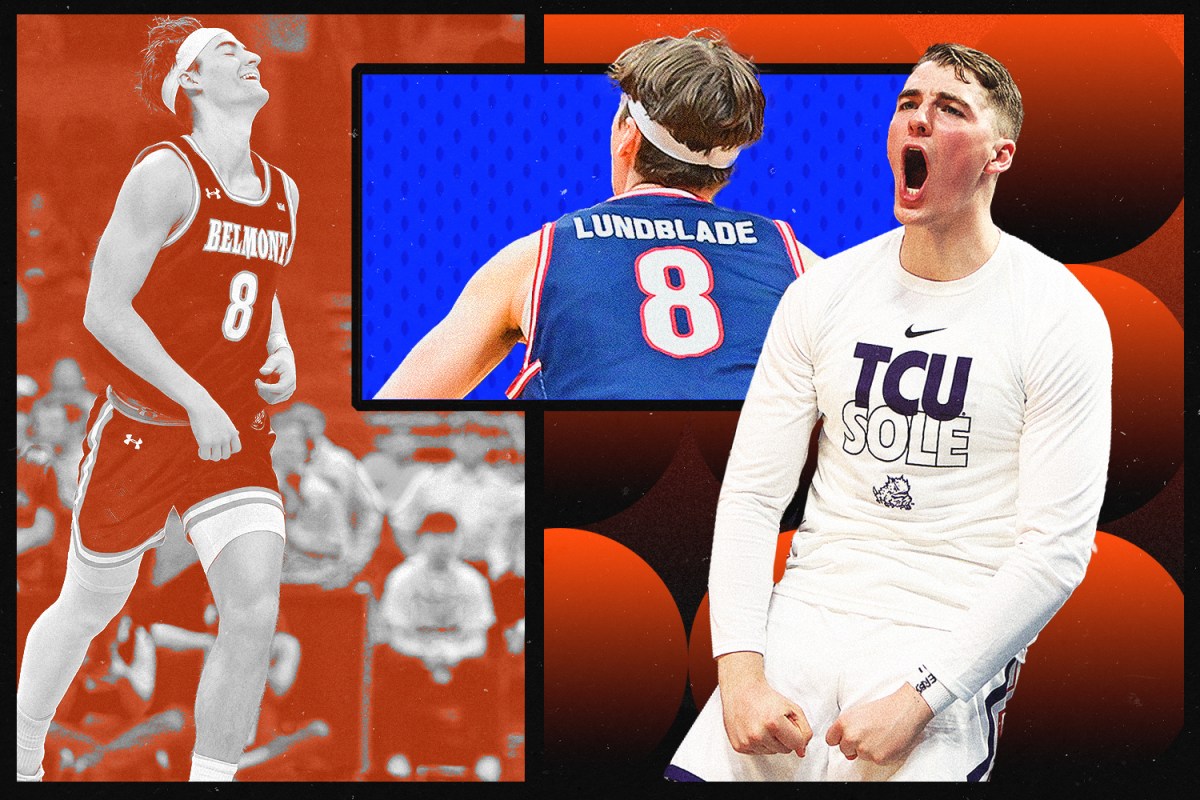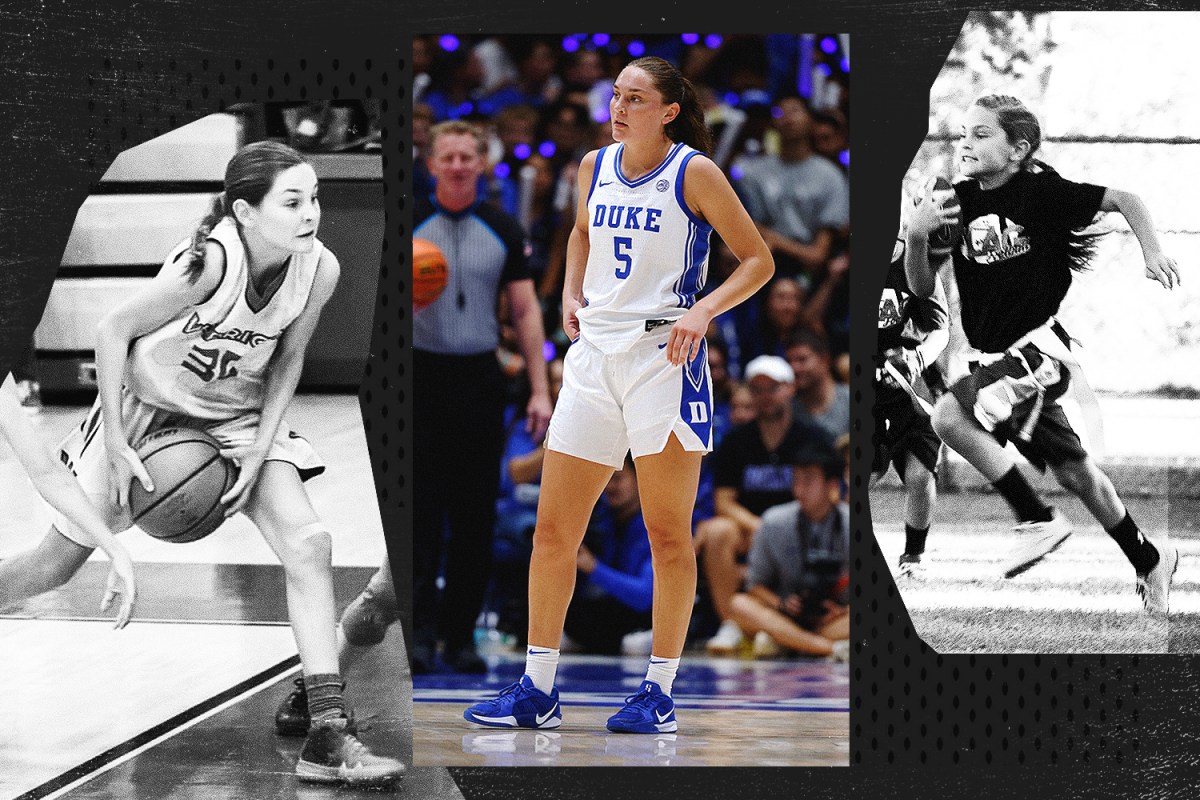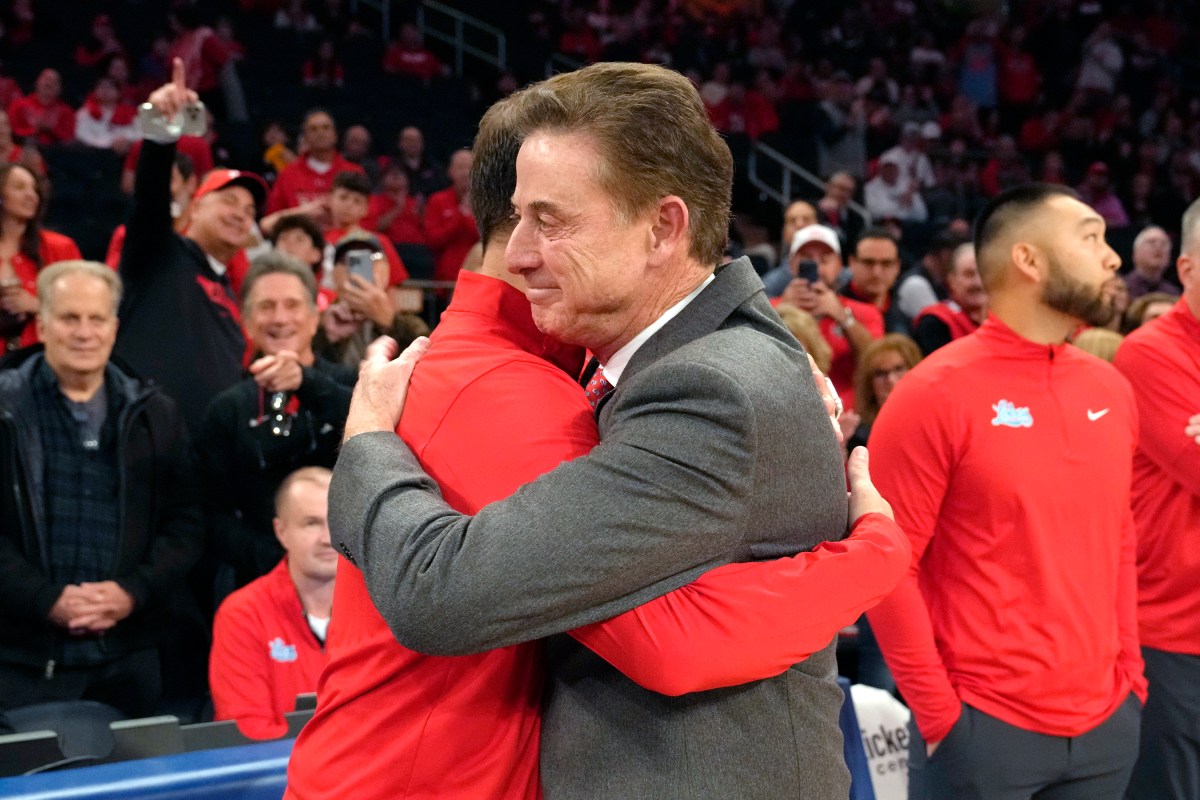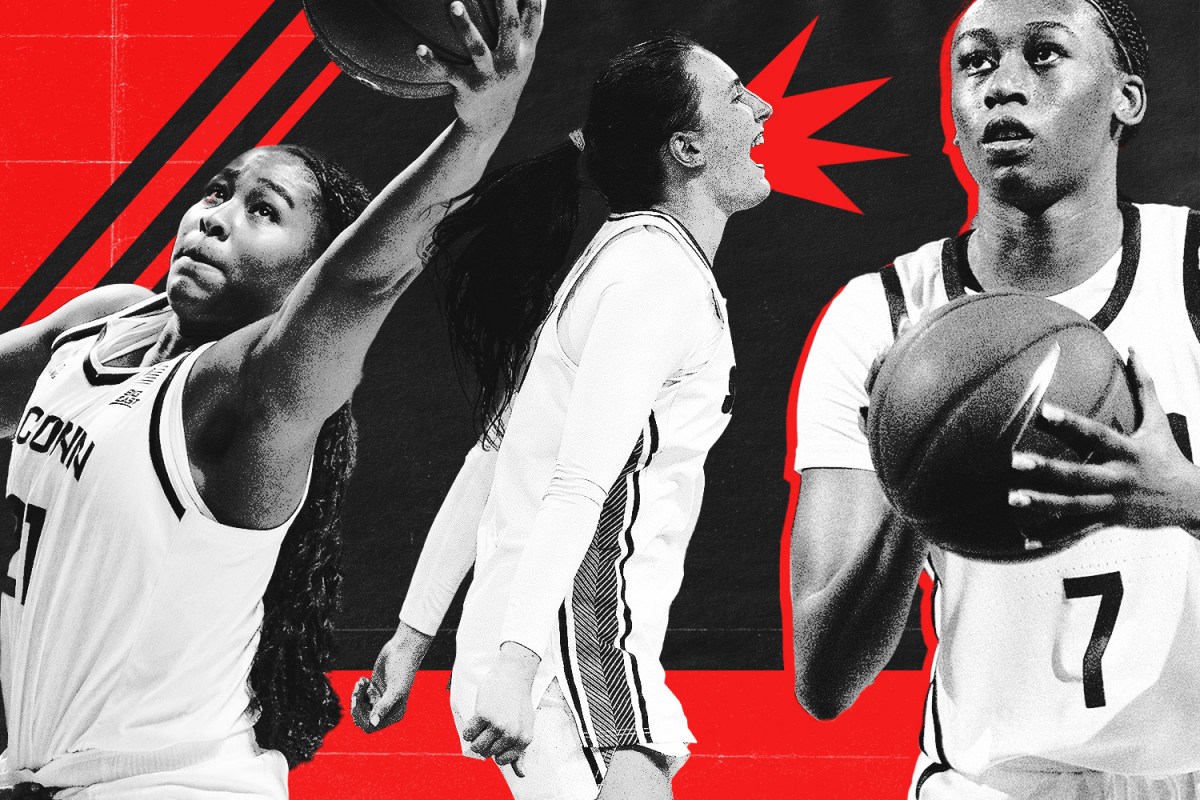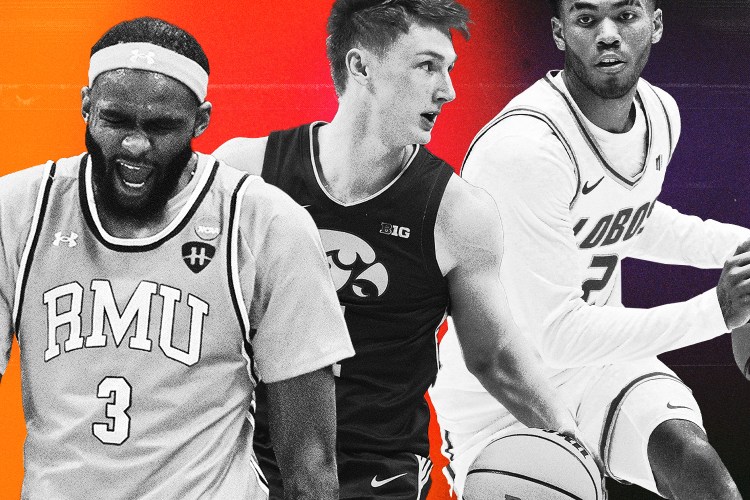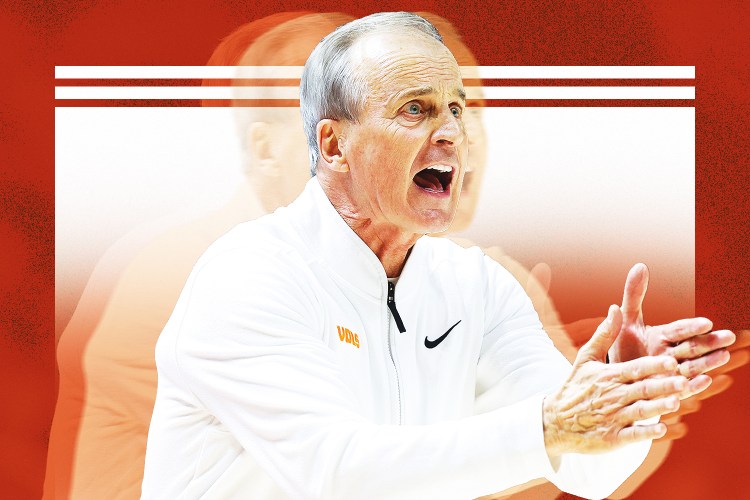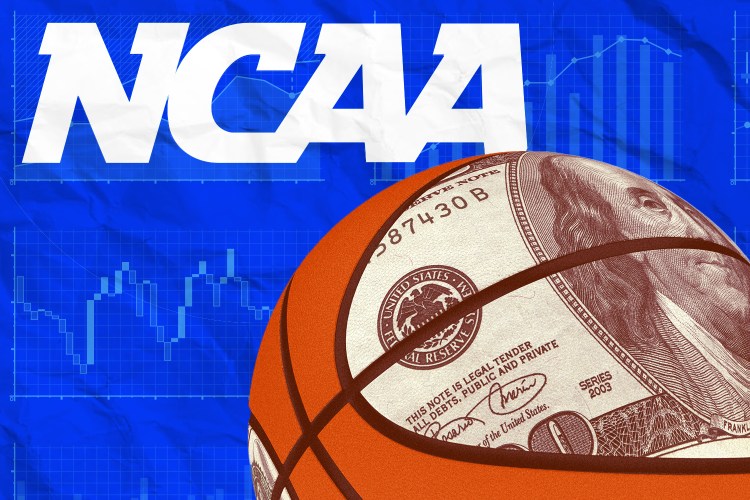Here are a few facts you might not know about Northwestern basketball.
Over the last two seasons, the Wildcats have won 24 Big Ten games. The only teams with more are Purdue and Illinois. Northwestern is one of two teams (Purdue being the other) that have finished in the top four of the conference during that span. Northwestern and Michigan State are the only Big Ten teams to claim at least one NCAA Tournament win the last two years. And Northwestern’s five wins over AP top-15 teams the last two years are the second-most in the league behind Purdue’s 10.
Given all of this, and given that no Big Ten team returns a higher percentage of minutes (62.3 percent), it would be logical to assume the Wildcats are entering the 2023-24 campaign with lofty expectations. Imagine coach Chris Collins’ surprise, then, when they were picked to finish 16th at the Big Ten’s media day last month. “I was a little insulted, but as a coach I was also humored and kind of happy about it,” Collins tells Hoops HQ. “We’ve always had kids who came in under the radar and had a chip on their shoulder. They want to prove they can play against the best. It helps to keep that message going when you’ve had the kind of seasons we’ve had the last two years and people still think you’re going to be one of the worst teams.”
To be fair, there is basis for the low estimation. Northwestern graduated two of its top three scorers, most notably Boo Buie, the 6-foot-2 super senior point guard who finished as the school’s all-time leading scorer. But there’s also no doubt that for much of the public, this program is still shedding its long-held, well-earned reputation for ineptitude. The NCAA Tournament was in existence for 77 years before Collins finally broke that ignominious streak in 2017. Things regressed precipitously in the years that followed and though Collins has done impressive work to right the ship, he knows all too well that the only thing harder to change than history is perception.
That’s what makes this season so crucial. If the Wildcats can keep their momentum going despite having lost Buie, then they might finally be able to convince folks that they can run with the Big (Ten) Dogs on a regular basis. “You get respect by stacking the good years,” Collins says. “The question now is, can we be a program that wins when great players leave? That’s what college is. Guys go pro, guys graduate, so you get new guys who fill the jerseys and they have to figure out how to get it done.”
“The question now is, can we be a program that wins when great players leave?”
Northwestern coach Chris Collins
Collins was under no illustions when he alighted in Evanston in the spring of 2014. Having grown up in the Chicago suburb of Northbrook, he was plenty familiar with Northwestern’s history. He went on to have a stellar career at Duke, where he played in the 1994 Final Four and later served as an assistant to Mike Krzyzewski for 13 years. Amazingly, it only took Collins four years to get the Wildcats into the NCAA Tournament, which ended with a hard-fought 79-72 loss to No. 1 seed Gonzaga in the second round. There was every reason to believe a new age had finally dawned.
At the time, Northwestern’s athletic facilities were light years behind those of its competitors. That changed in 2018, when the school completed a $110 million renovation of Welsh-Ryan Arena. Northwestern also spent $30 million to convert the football team’s former practice facility into a state-of-the-art performance center that serves the men’s and women’s basketball as well as several other programs. Now, Collins says, “There’s nothing that we’re lacking from a facility standpoint. What we have now is what everyone else has.”
Despite all that, Collins was unable to build upon the momentum from that tourney breakthrough. The Wildcats suffered five consecutive losing seasons thereafter, bottoming out with an 8-23 record (3-17 Big Ten) in 2019-20. In the spring of 2022, then-athletic director Derrick Gragg issued an unusual public statement expressing “disappontment” in the state of the program and revealing that he had “tasked Coach Collins with making necessary changes.”
It was not an easy time for Collins, but he drew solace from the perspective he gained as the son of NBA veteran head coach Doug Collins, who won 849 games but was also fired three times. “I’m a little more thick-skinned than some people because I lived through things like this while I was growing up,” he says. “I got to a point where I figured, you know what? I know what I’m doing and I’m confident in my own skin. I’m just going to go out there and coach the way I know how. At the end of the day, if they want to make a change, I’ll be at peace with that.”
The Wildcats surprised everyone that season by finishing in a tie for second in the conference with a 12-8 record (23-12 overall). They earned a No. 7 seed to the NCAA Tournament, where they lost to UCLA in the second round. Much of that was due to the maturation of Buie, who despite having received no scholarship offers from any other Big Ten school had grown into an all-conference player. With the advent of the transfer portal and rule changes that allowed players to capitalize their Name, Image and Likeness (NIL) value, Northwestern was very much at risk of losing Buie to another school. The program was able to marshal the necessary resources to convince him and most of the other core players to stay. That investment paid off as the Wildcats went 12-8 again in the Big Ten last season and knocked off FAU in overtime in the first round of the NCAA Tournament. The run ended with a 75-58 loss to eventual champion UConn.
Remarkably, Collins had gone from almost losing his job to engineering the first back-to-back NCAA Tournament appearances in school history. “The second build was harder than the first,” he says. This time, he was determined not to let things slip. To fill the void left by Buie’s graduation, Collins signed Jalen Leach, a 6-foot-4 super senior point guard who averaged 16.2 points, 4.1 rebounds, 3.0 assists and 1.8 steals while shooting 35.4 percent from three last season at Fairfield. Unlike most of the Big Ten writers who voted in the preseason poll, Leach is too young to remember Northwestern’s many decades of irrelevance. “To be honest I didn’t know about all that went on in the past,” he says. “I only knew the recent history. I watched them play in the last two NCAA Tournaments. I wanted to play at the highest level and I liked the people here and the way they played.”
Leach had an impressive debut in Monday’s season opener against Lehigh, going for 12 points and 6 assists (to just one turnover) in a 90-46 win, but this team’s fate will be determined mostly by returning veterans like 6-foot-7 junior forward Nick Martinelli, who had a team-high 26 points and 10 rebounds in the opener, and 6-foot-6 senior guard Brooks Barnhizer, who is the top returnee but missed the opener because he is still working his way back from a foot injury he sustained over the summer. Barnhizer is doubtful for Saturday’s game at Dayton, but he should be back in action next week.
If everyone stays healthy, Northwestern has an excellent chance to extend its NCAA Tournament streak to three — or at least, finish considerably higher than 16th in the Big Ten. And there’s every indication the winning will continue. One year ago, the school hired a new athletic director, Mark Jackson, who presided over two NCAA championships in his previous job as the AD at Villanova. On Wednesday, Collins got a verbal commitment from Cade Bennerman, a 6-foot-11 three-star forward from Nashville. He joins an incoming class that is currently ranked No. 10 nationally by 247Sports. If that holds up, it will be the most heralded recruiting class Collins has ever signed. Collins should have enough NIL resources to bring in a transfer or two next spring, but for the most part he prefers to build his rosters the old-fashioned way. “I’m not going to ignore the portal, but I still think the best way for us to do it is to. have chemistry and continuity,” he says.
Northwestern has come a long way — twice — but it still has much to prove. That’s just how Collins likes it. “What keeps me going now is that I don’t want us to take steps backwards,” he says. “We know we’re still not respected like we want to be. The only way to change that is to keep winning.”
